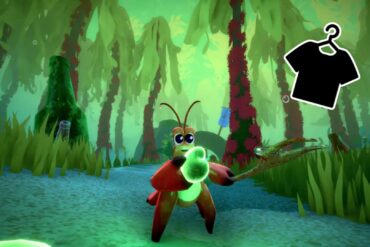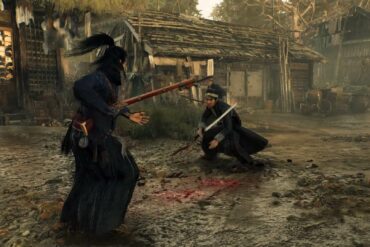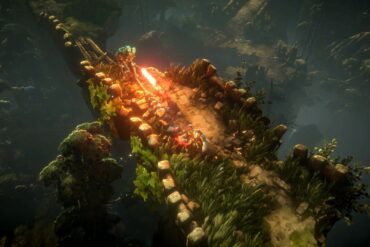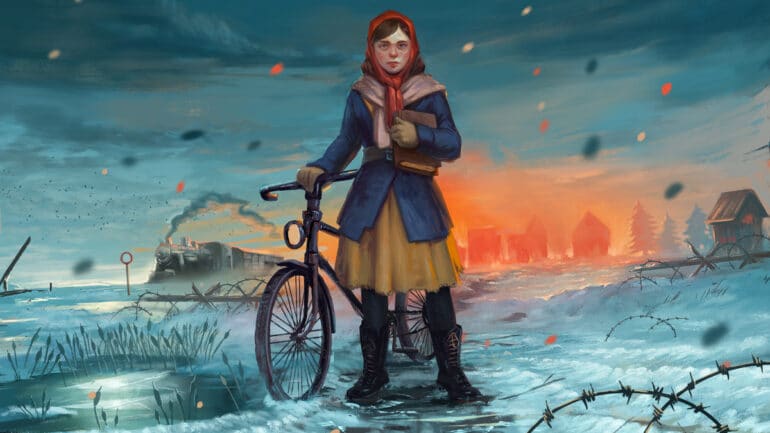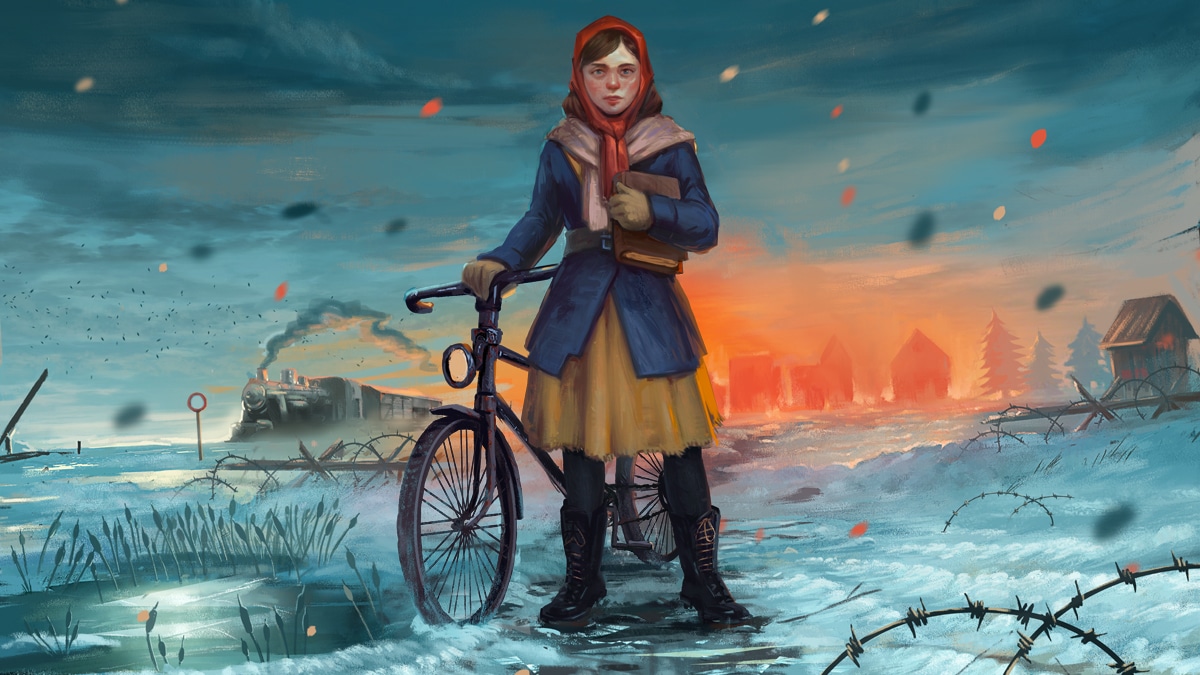Life has a knack for getting complicated unexpectedly; it’s a constant whirlwind of change where our choices hold the power to shape our destiny. Often, we underestimate the profound impact even the tiniest of occurrences can have on our lives. Such is the essence of Gerda: A Flame in Winter.
This captivating tale immerses you in Gerda’s world, leaving you uncertain of what lies ahead at every turn. Through its authentic storytelling, the novel takes you on a poignant expedition, delving into the hardships and desperation of life during wartime.
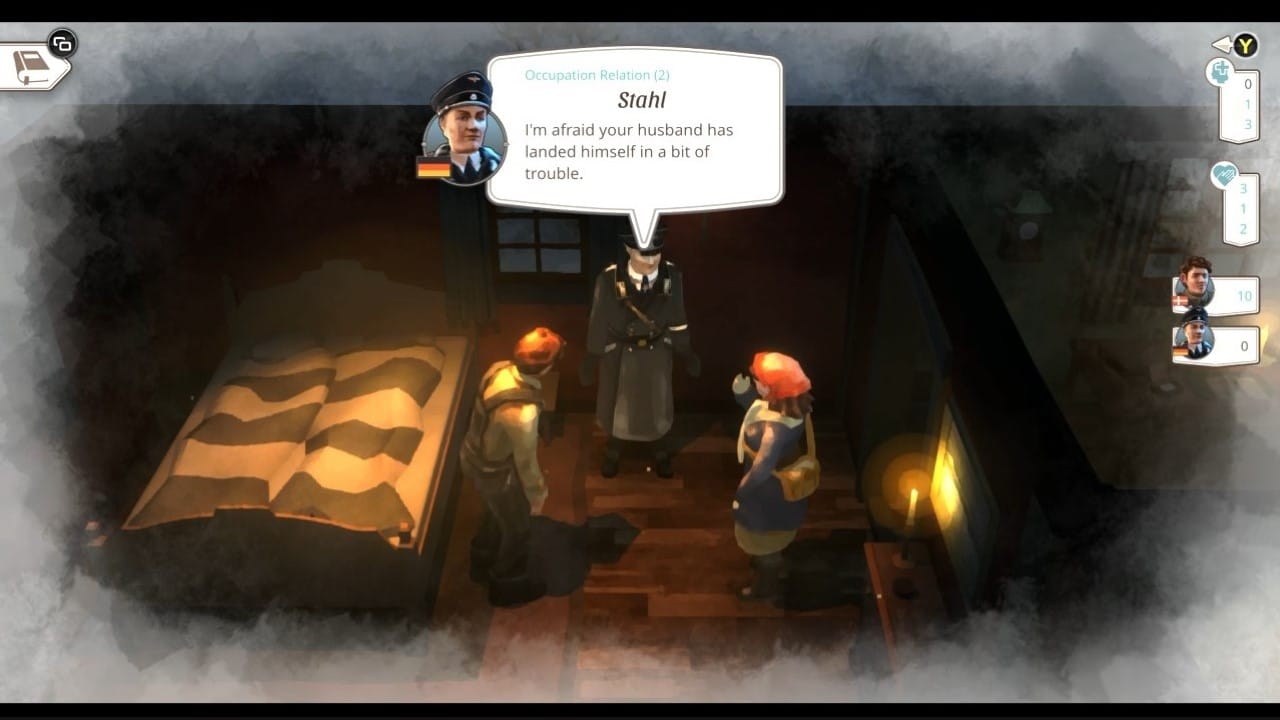
“Every choice you make is for the benefit of your husband, to save him from the Gestapo.”
Step into the shoes of Gerda, a woman torn between her Danish and German heritage, thrust into the tumultuous backdrop of 1945 during the harrowing days of World War II. Set in the idyllic town of Tinglev, nestled near the border, Gerda: A Flame in Winter tells a poignant tale.
Initially leading a quiet life, Gerda’s world is abruptly shattered when her husband, Anders, is apprehended by the menacing Gestapo for his participation in a devastating factory explosion. This pivotal moment catapults Gerda into an unfamiliar realm, unveiling a hidden world her husband chose to keep a secret.
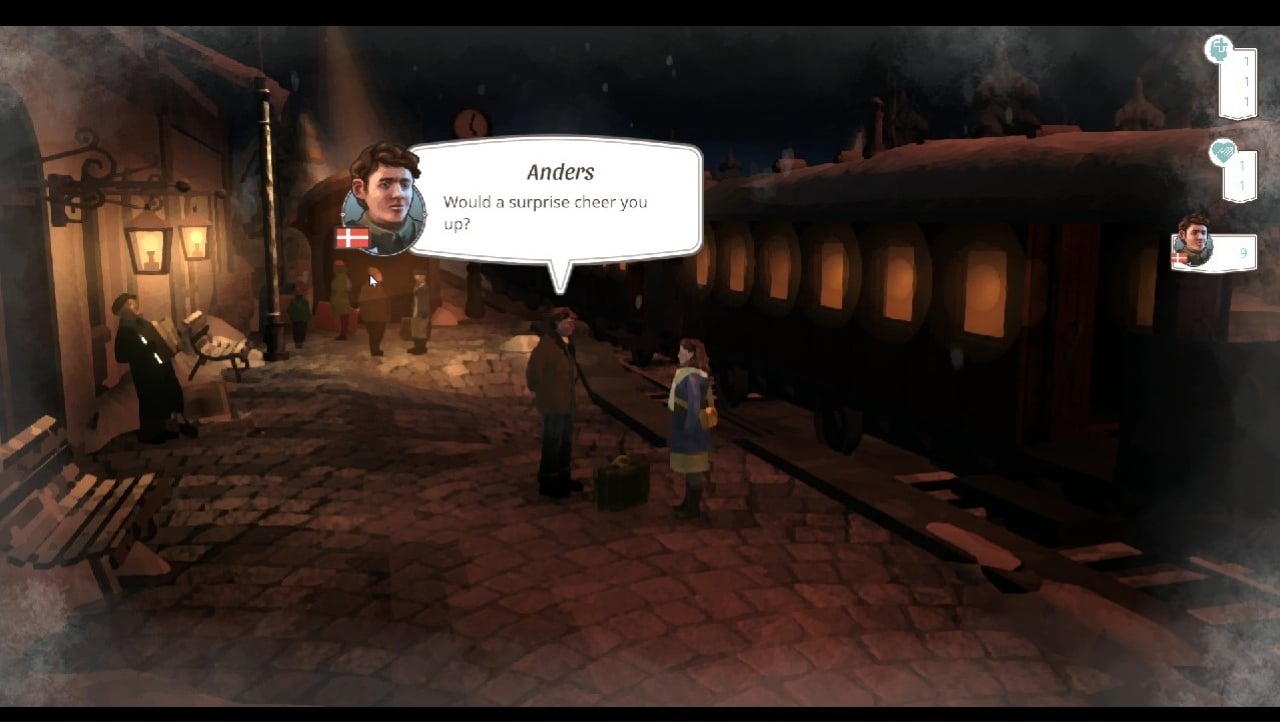
Gerda: A Flame in Winter is an immersive experience that presents you with tough choices, evoking feelings of both hope and helplessness. Every choice you make is for the benefit of your husband, to save him from the Gestapo. Yet, what appears to be a simple mission unravels a web of corruption within the town, forcing you to unearth long-kept secrets in pursuit of your own objectives.
Gerda masterfully strikes a delicate balance, simultaneously easing and complicating your path, regardless of the choices you make. This contradictory nature can be frustrating, but within the rich tapestry of this narrative-driven game — centred around the impact of Nazi Germany — it becomes a natural reflection of the story at hand.
“Many choices you will find yourself making, may not end up helping you as bigger events happen”
Similar to the complexities of life, Gerda: A Flame in Winter presents a multitude of hidden elements waiting to be discovered. Central to this experience are the individuals who interact with Gerda, forming the foundation of its intricate web of connections. Every interaction you experience carries weight, as your words and actions have the power to sway a character’s perception of you.
Consequently, a trust system is implemented, wherein characters may either bestow their trust upon you or display distrust. The very essence of Gerda lies within this trust mechanic, as the choices you make shape the course of the narrative.
Moreover, Gerda incorporates a point system that aligns with different viewpoints: the Resistance, the Occupation, the Germans, and the Danes. Your support for a particular perspective earns you points, thereby influencing the unfolding events. The decisions you make and the entities you place your trust in are pivotal in unravelling the path to rescuing your husband, Anders.
The process of saving your husband, however, becomes a convoluted endeavour. You must carefully determine which approach to adopt in order to secure his safety. Each choice carries varying degrees of personal benefit, yet one wrong move can unravel your entire plan. Gerda offers a story-rich narrative that constantly keeps you guessing, as the consequences of your choices often extend far beyond your immediate expectations.
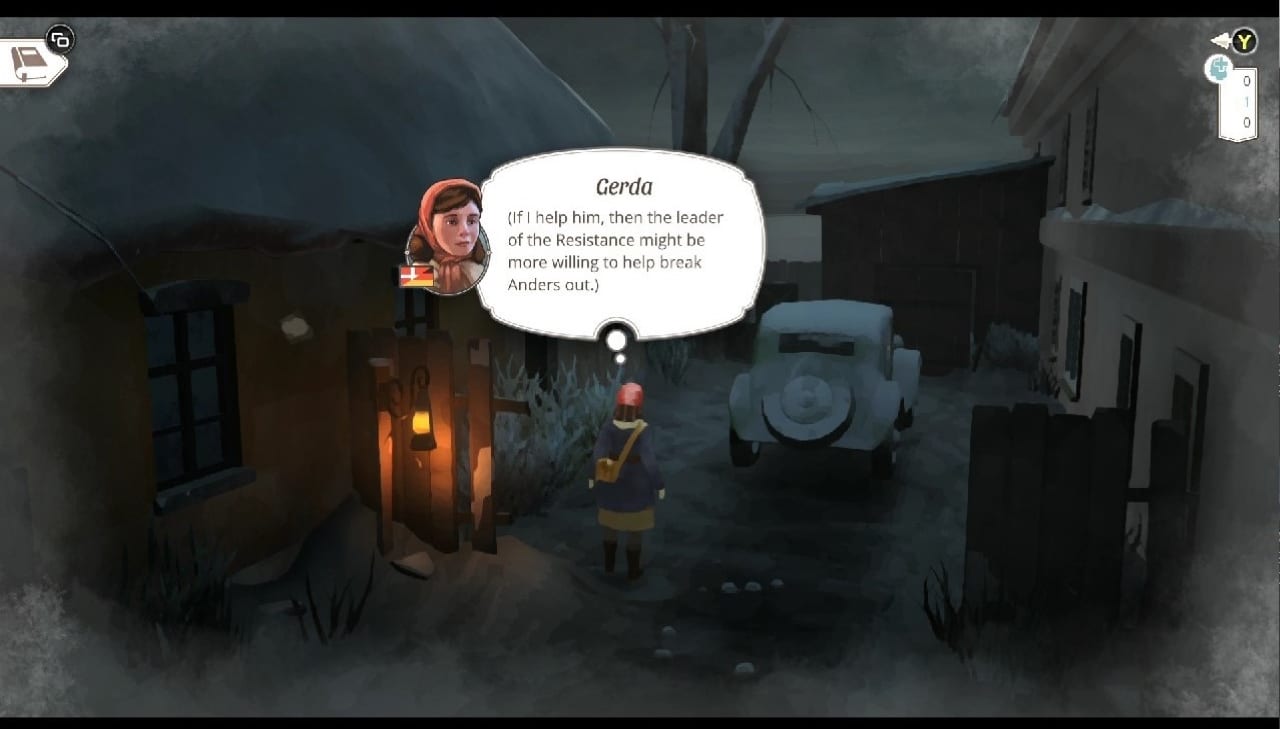
Everyone wants to do the right thing. In Gerda, it’s practically impossible to impress everyone with your ways of life. Which only helps the realistic nature of Dont Nod’s historic venture. A lot of the time when playing you have control, only for it to be taken away with the chance mechanic. Gerda has done a wonderful job at letting the player feel the hopelessness of war.
Her coping mechanism helps us understand how desperate Gerda is.
In Gerda: A Flame in Winter, Gerda writes in a journal to cope with the chaos happening around her. She discusses how she feels, and you can pick certain things to write down for mental notes. This also plays into the narrative by detailing the choices you make throughout the game.
Gerda writes about how she is processing her husband being taken away and how she is feeling toward her plan. In addition, she discusses other characters, like the suspicious Reinhart, the strong-willed Liva, or the hopeless romantic Margit. She writes how she feels about them, and this gives us hints into how the plan may be leading. Uncovering Gerda’s own personal opinions on other characters gives us insight into how these characters really are.
When looking through her journal you also find a section for facts. This tab gives you information on certain things happening in the story, and where they originate from. It includes a number of interesting historic photographs that help you understand Nazi Germany more. This gives you a great amount of insight while also learning about history at the same time.
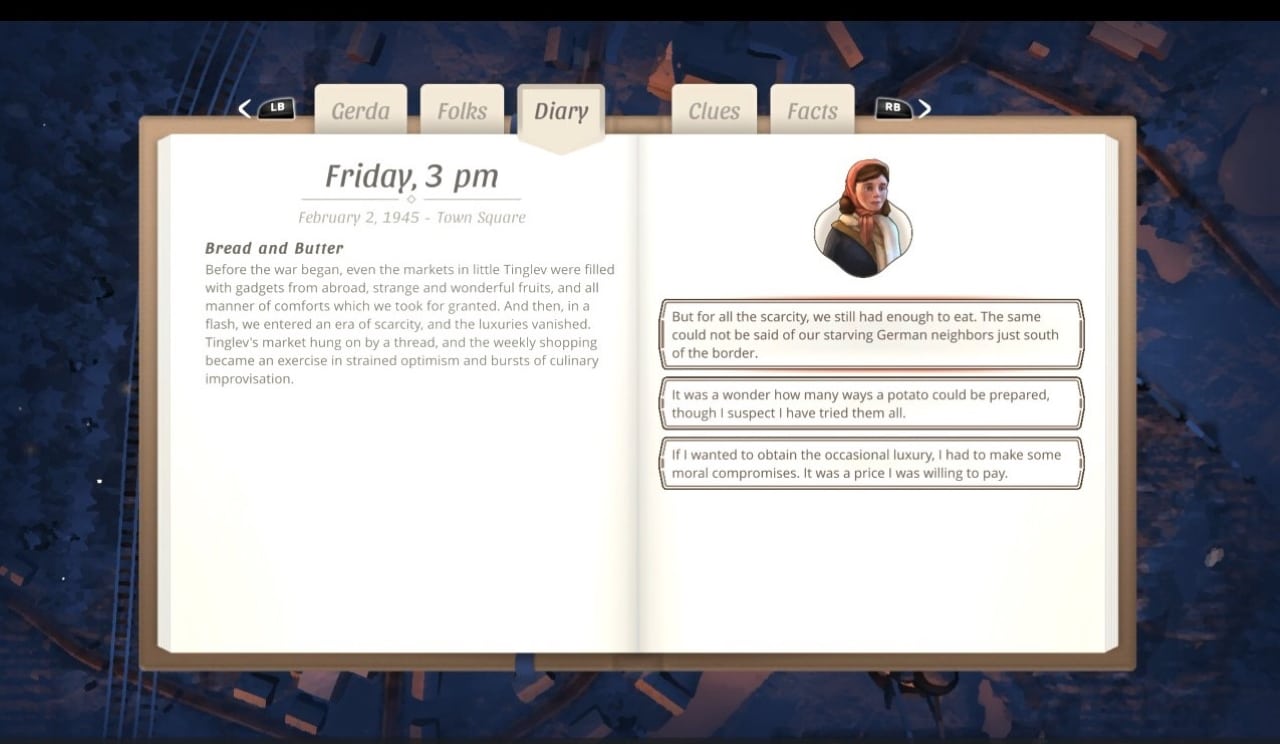
“I always want what is best for every character”
Throughout Gerda, I found myself also feeling her heartache, which impacted my decisions a lot. I love being immersed in story-driven games like these, and I always want what is best for every character. Alas, that simply isn’t possible; everyone can’t win. As much as you try to strategise, the unpredictability of Gerda will keep you questioning your choices.
Characters will die, and blood will be shed. What’s important is what characters you decide these happen to. Gerda is a game of chance, and although you may be able to save some characters, you’d be surprised as to which ones will suffer. The consequences of your actions weigh heavy on all the people in Tinglev.
The game mechanics are made the way they are so you, as a player, feel the unfairness of choice during wartime. Despite the times when controls would not register or diary entries are written one too many times, this does not take away from the experience Gerda gives you. This game is about survival and taking advantage of the situations you’re in.
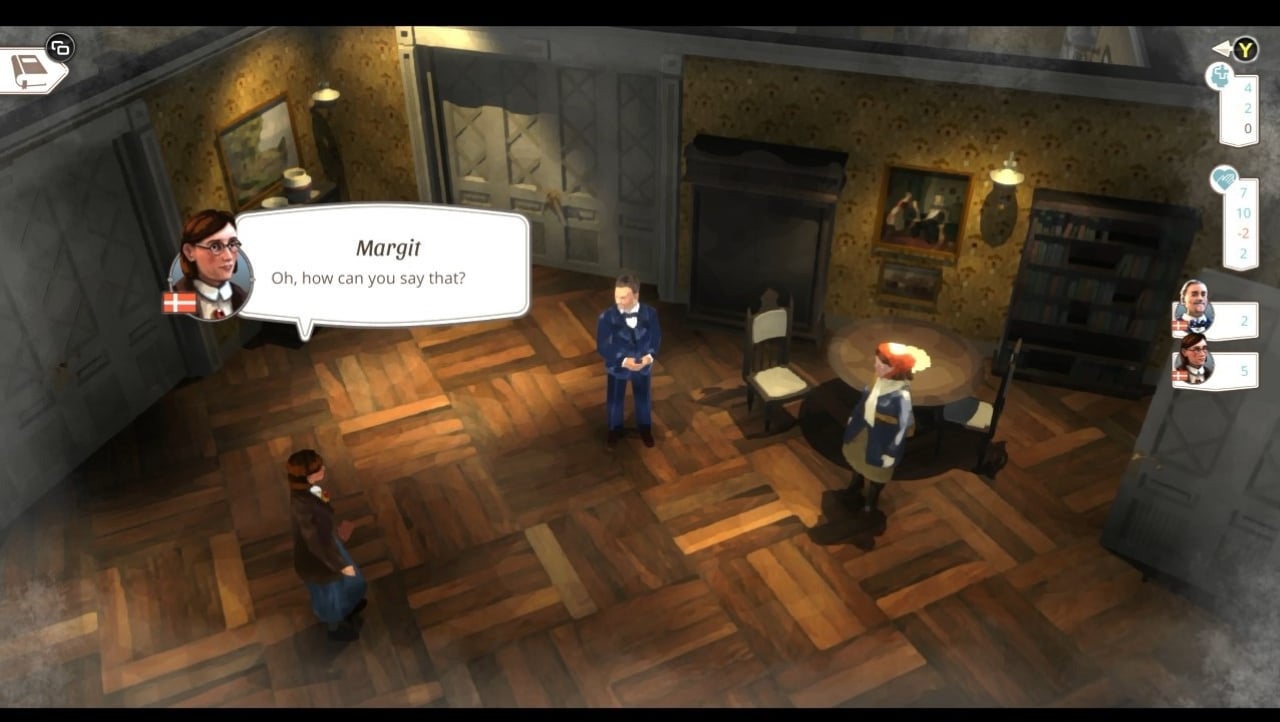
“As someone that loves the inclusion of voice acting, it took me a little while to get immersed.”
Unfortunately, as you survive these situations, controller bugs occasionally get frustrating. I often found Gerda getting stuck at the beginning of a scene and unable to move. At first, I thought this was a controller issue, but as I switched to a keyboard, the same issue remained. After a while, it fixes itself but in highly suspenseful moments it’s mood-killing as it disrupts the rhythm of the story.
Along with these moments, there is little voice acting. The only times Gerda is found to speak is when she is writing in her diary. This is the only voice acting found in the entire game, which is unfortunate as some other aspects of the game had the opportunity for it.
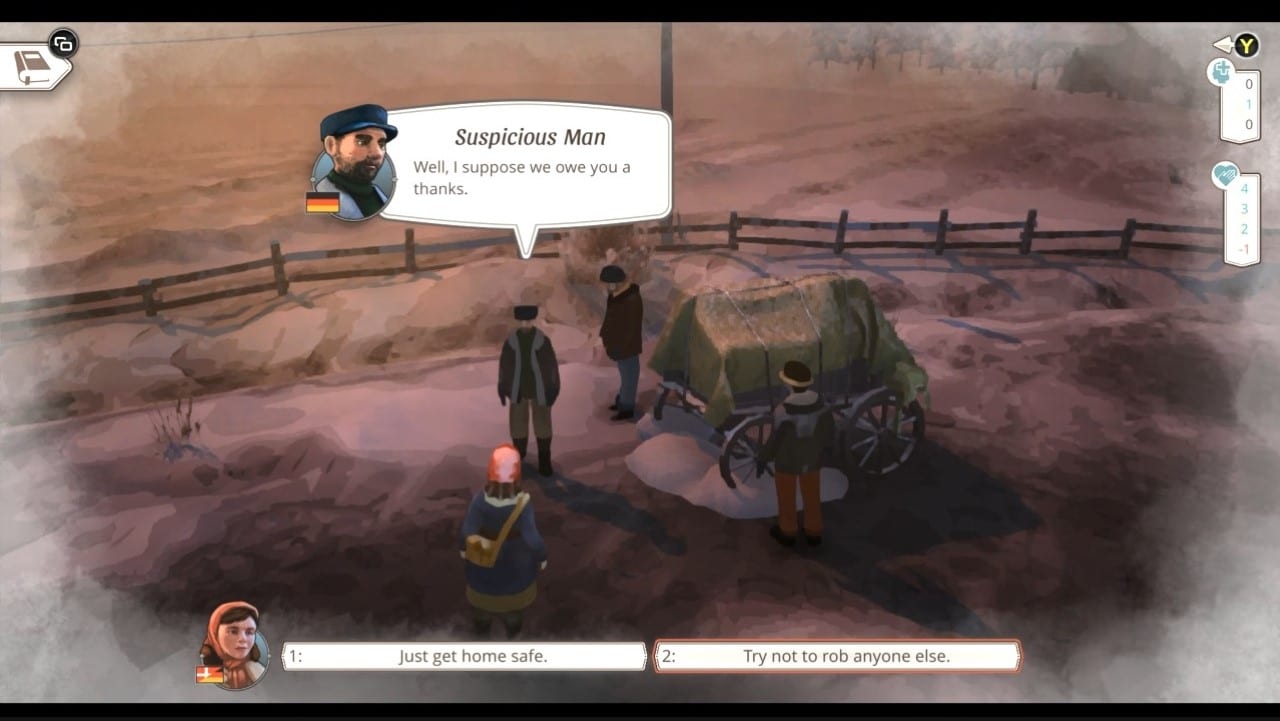
Being a lover of narrative adventures, Gerda: A Flame In Winter was a big stand-out. Its unique water-colour based visual style made me intrigued by what story I was about to uncover. As I delved deep into Gerda’s life, I grew to love the realistic nature of the situations you find yourself in. It educated me on history and made me understand how difficult these times were. This game is full of information about history and shines a light on wartime in a unique way.
*Disclaimer : Reviewed on PC; code was provided by the Publisher.


